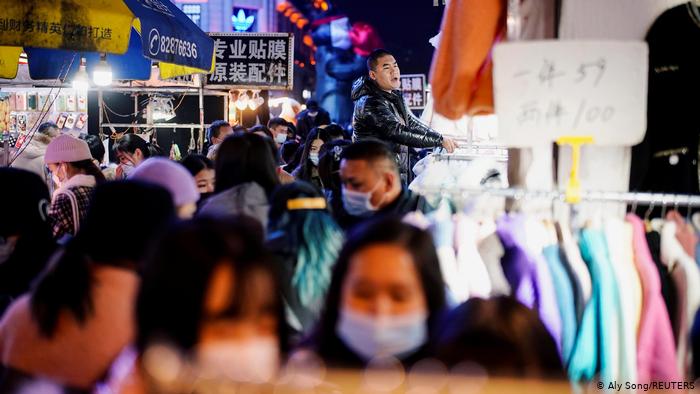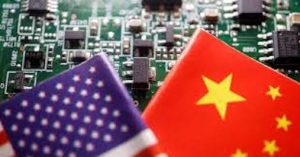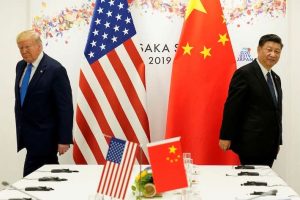Policy makers in Beijing have been sending signals since H2 last year that they’d like to exit the “abnormally loose” monetary policy stance.
They did not move quickly because the global economy faced downside risk from the pandemic back then and they tried to tighten policy in January through open market operations.
A member of the monetary policy committee said in January publicly that financial stability would be at risk if the central bank keeps the monetary stance loose for too long.
Read more: Asia Times Financial rebrands to celebrate new indexes
We believe that several recent developments during the Chinese New Year holiday have made further monetary policy tightening in China more likely in the coming months.
They include the potentially larger-than-expected fiscal stimulus in the US, the success in the fight against the pandemic, and the positive high-frequency data on economic activities during the holiday.
First of all, there are some signs that the new round of fiscal stimulus policies launched by the US government may be relatively large. Recently, some well-known American economics scholars pointed out that the stimulus package proposed by the US government is too large and may cause the economy to overheat.
The Biden administration reacted immediately, dismissing these objections. The current US government faces a challenge similar to what the Chinese government faced after the 2008 financial crisis – it would rather run a big fiscal stimulus and take the risk of overheating the economy, than running a smaller package and face the risk of a high unemployment rate.
BOND YIELDS
Commodity prices have seen a new round of increases, and US bond yields have also risen to their highest levels since the epidemic.
Secondly, during the Spring Festival, the Covid-19 pandemic in mainland China has been well contained, and new local cases were close to zero for many consecutive days.
At the same time, the overseas epidemic situation has also improved significantly and the number of new cases in many European and American countries has declined.
The recurrence of the epidemic may be the main risk that the government worried about before the holiday, but now it appears that the pandemic is no longer an obstacle to a tighter monetary policy. In the coming months, temperatures in the northern hemisphere will rise and vaccinations speed up in many countries – the worst may be already behind us.
SPRING FESTIVAL
Thirdly, high-frequency data shows that China’s economy was strong during the Spring Festival. Cinema box office data set a new record and the average daily sales of passenger vehicles reached 54,000 in the first week of February, an increase of 15% from the first week of January.
According to the Ministry of Commerce, from February 11 to 17, the nation’s key retail and catering companies achieved sales of approximately 821 billion yuan, an increase of 28.7% over last year’s Spring Festival Golden Week and an increase of 4.9% over 2019’s Spring Festival Golden Week.
During the Spring Festival, large payment institutions noticed that the sales of catering merchants increased by about 1.3 times year-on-year, and online catering consumption on some online takeaway platforms more than doubled. US data released this week also showed that retail sales growth in January was higher than expected.
POLICY STANCE
In conclusion, we believe that the looser the US monetary policy, the faster the global economy will recover from Covid-19, the more likely China will tighten its monetary policy stance.
The People’s Congress will start on March 5. The January-February macroeconomic data to be released in mid-March is likely to be strong. The possibility that the government will tighten policies based on the confirmed economic recovery is on the rise.
Will the tightening action have an immediate negative impact on the economy? Likely not. The global recovery in Q2 is expected to be strong. China’s export growth will help to offset part of the tightening effect from the PBoC.
Moreover, the domestic economy itself is also on a recovery track itself. As vaccine is available to more people in China and the weather warms up, the service sector will likely rebound further.
We expect growth will stay strong in H1 this year. The H2 outlook is still uncertain with risk on the downside, depending on the strength of global recovery and the pace of PBoC tightening.
- Zhiwei Zhang is the Chief Economist at Pinpoint Asset Management
























